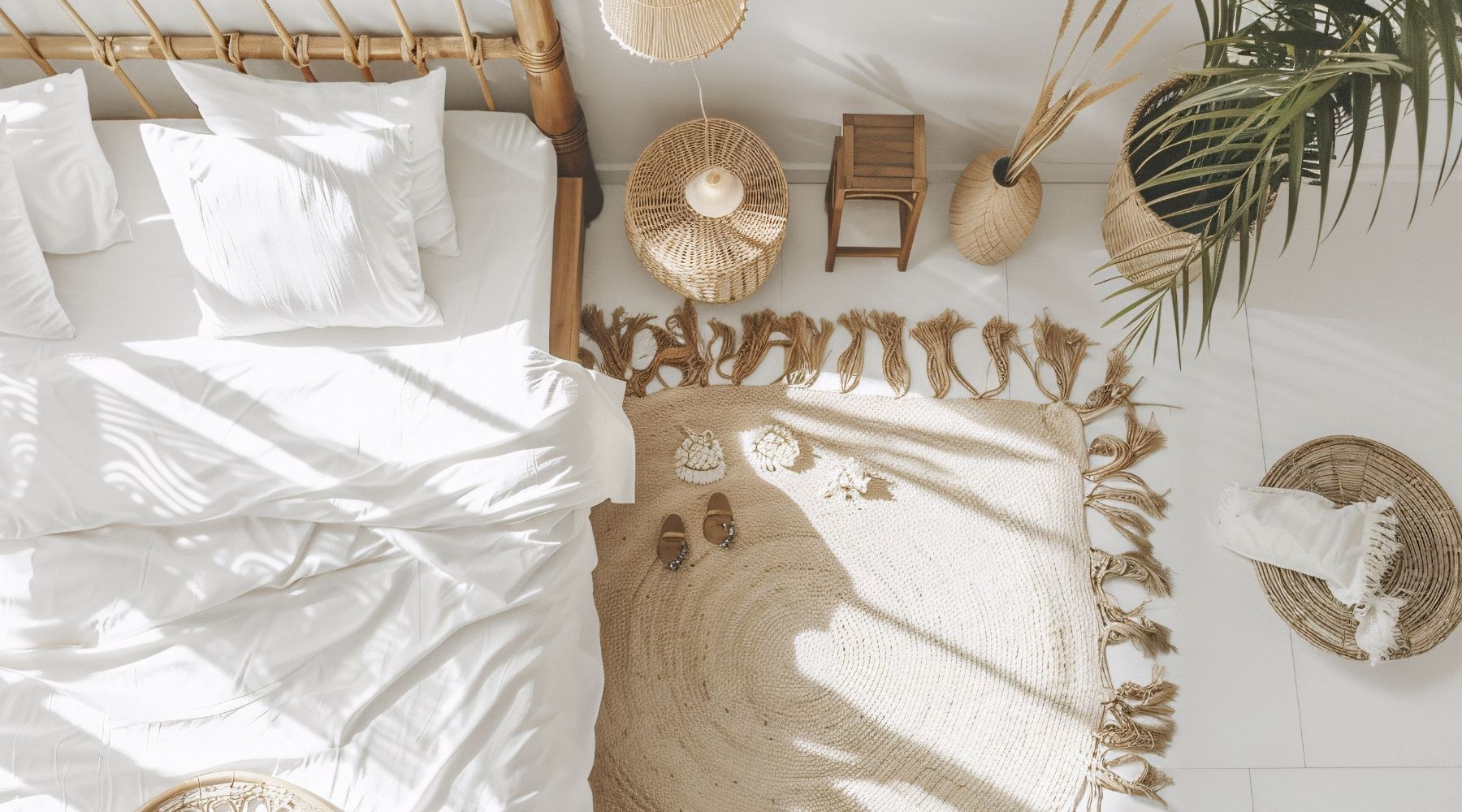When it comes to sustainability, we often focus on the big things - cutting down on plastic, reducing our carbon footprint, and supporting eco-friendly brands. But what if we told you that something as simple as the sheets on your bed could be harming the planet? From the fabric they’re made of to the chemicals used in production, the impact of traditional bedding materials can be surprisingly damaging to the environment. If you’re looking to make more sustainable choices in your daily life, it might be time to take a hard look at your bedding. Here’s how your sheets could be contributing to environmental harm and why making the switch to more eco-friendly options, like eucalyptus bedding, can make a difference.
The Hidden Environmental Cost of Cotton Bedding
Cotton is one of the most commonly used fabrics for bedding, but its environmental impact is far from negligible. Conventional cotton farming requires vast amounts of water - an estimated 2,700 liters to produce just one cotton t-shirt! This is due to the crop's water-intensive nature, particularly in regions where water resources are already limited. Beyond water usage, conventional cotton farming also uses a large amount of pesticides and fertilizers, which can harm ecosystems, contaminate water supplies, and endanger wildlife.
Additionally, cotton fabric is often treated with harsh chemicals during processing and dyeing. These chemicals can end up in the water supply and harm local communities, wildlife, and aquatic life. While organic cotton is a more sustainable option, it still requires a lot of water, and the demand for organic cotton is not enough to fully meet global needs.
Eucalyptus Bedding: A Game-Changer for the Planet
Eucalyptus bedding offers a sustainable alternative to cotton sheets, and its environmental impact is far less damaging. Made from sustainably sourced eucalyptus trees, this fabric is produced using a closed-loop process that recycles water and chemicals, minimizing waste and pollution. Unlike cotton, eucalyptus trees require minimal water to grow, making them a more sustainable choice for eco-conscious consumers.
In fact, eucalyptus farming uses up to 80% less water than cotton farming, making it a far more water-efficient crop. Eucalyptus trees also absorb carbon dioxide as they grow, helping to reduce greenhouse gases in the atmosphere. Once harvested, the wood is processed into fibers without the use of harmful chemicals, making eucalyptus sheets a much cleaner and safer choice for the planet.
The Toxic Chemicals in Conventional Bedding
Beyond the materials themselves, many traditional bedding brands treat their products with toxic chemicals to achieve things like stain resistance, wrinkle reduction, and flame retardancy. These chemicals can pose health risks to both the environment and the people who sleep on them. For example, flame-retardant chemicals, which are often used in bedding, have been linked to hormone disruption and various health issues.
Eucalyptus sheets, on the other hand, are typically free from harmful chemicals, offering a more natural and safe alternative. The manufacturing process of eucalyptus fibers involves fewer chemicals, making it a safer choice for your health as well as the environment. Plus, the natural antimicrobial properties of eucalyptus mean that you won’t need to rely on toxic chemicals to keep your sheets fresh.
The Environmental Impact of Bedding Waste
It’s not just how your bedding is made - it’s also how long it lasts. Bedding made from low-quality materials, like cheap cotton or synthetic fabrics, often starts to wear out quickly. The result? Frayed edges, faded colors, and fabric that loses its softness after a few washes. This can lead to more frequent purchases, contributing to landfill waste.
Eucalyptus sheets are known for their durability, with the fabric holding up better over time compared to traditional cotton sheets. They resist fading, shrinking, and pilling, meaning you’ll have to replace them less often. This longer lifespan not only saves you money in the long run but also reduces the overall environmental impact of your bedding.
Eucalyptus Bedding: The Eco-Friendly Choice
By making the switch to eucalyptus bedding, you’re investing in both your sleep and the planet’s future. Here are just a few of the key environmental benefits of eucalyptus sheets:
- Less Water Usage: Eucalyptus trees require up to 80% less water than cotton crops, making them a much more sustainable option for bedding.
- Eco-Friendly Manufacturing: The process of making eucalyptus fabric is a closed-loop system, meaning it recycles water and chemicals, minimizing waste and pollution.
- Biodegradable: Unlike synthetic fabrics, eucalyptus bedding is biodegradable, meaning it won’t contribute to microplastic pollution when it’s eventually discarded.
- Reduced Carbon Footprint: Eucalyptus trees absorb CO2 as they grow, helping to offset carbon emissions and combat climate change.
Final Thoughts: Make the Change for a Greener Future
If you’re looking for a way to reduce your environmental impact, start with the things you use every day - and that includes your bedding. While it may seem like a small change, switching to more sustainable bedding like eucalyptus sheets can make a big difference. From reducing water usage to eliminating harmful chemicals, eucalyptus bedding offers a cleaner, greener alternative to traditional cotton sheets.
By investing in eco-friendly bedding, you’re not only creating a healthier sleep environment for yourself, but you’re also helping protect the planet for future generations. Ready to make the change? Your skin, your health, and the environment will thank you.








Share:
What's Inside a Memory Foam Mattress?
The Truth About Thread Count: What Luxury Eucalyptus Bedding Really Feels Like